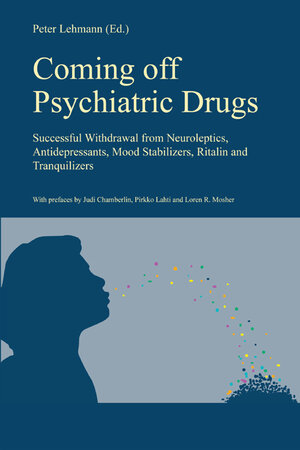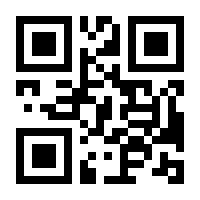
Psychiatric patients and their relatives; consumers, users and survivors of psychiatry, journalists, politicians, pastors, lawyers, judges and guardians; all professional workers in the psychosocial field: physicians, psychiatrists, nurses, social workers, naturopaths, psychologists, paedagogues, therapists, carers as well as the interested public
Coming off Psychiatric Drugs
Successful withdrawal from neuroleptics, antidepressants, mood stabilizers, Ritalin and tranquilizers
Vorwort von Pirkko Lahti, Vorwort von Loren R. Mosher und Vorwort von Judi Chamberlin, herausgegeben von Peter LehmannThe first book in the world about the issue of successfully coming off psychiatric drugs primarily addresses people in treatment who decide to withdraw. It also addresses their relatives and therapists.
Millions of people are taking psychiatric drugs, such as Haloperidol, Prozac, Risperidone or Zyprexa; for them, detailed accounts of how others came off these substances without ending up in the doctor's office, are of fundamental interest. In this manual, 26 former psychiatric patients from Australia, Austria, England, Germany, Hungary, Ireland, Japan, the Netherlands, New Zealand, Sweden, Switzerland and the USA – and for the first time, a relative – write about their experiences with withdrawal.
Additionally, ten professionals, working in psychotherapy, medicine, psychiatry, social work, natural healing, on the Internet and even in a runaway-house, report on how they helped in the withdrawal process.
The chapters: The Decision to Withdraw • Withdrawal without Pharmacogenic Problems • Coming off Step by Step • Counterweights • To Withdraw with Professional Help • Better Sometimes than Forever • Professional Support • The Time After
„This book is a must read for anyone who might consider taking or no longer taking these mind altering legal drugs and perhaps even more so for those able to prescribe them.“ (Dr. med. Loren R. Mosher [1933-2004], Soteria Associates, August 26, 2002)
„The book has a provocative message: life-experiences sometimes differ from scientific agreements. Based on the personal experiences of (ex-) users and survivors of psychiatry and the few professionals who assist people to come off psychiatric drugs, the book is a good place to open the discussion. The book should be available in every medical practice, in every therapeutic ward, in every patient library.“ (Pirkko Lahti, President of the World Federation for Mental Health 2001-2003, August 19, 2002)
In the new edition, Susanne Cortez describes the possibility and the necessity of small step tapering at the end of the withdrawal process after a long period of taking psychiatric drugs, with the example of the neuroleptic quetiapine (marketed as Seroquel etc.) in her article „And finally atypically careful.“ New is also the latest information on tapering strips, prescriptions for preparing individually tailored dosages and further possibilities for small-step reduction, as well as suggestions for discontinuing combinations in the closing words „And now, how to proceed?“
With all commercially available psychiatric drugs and their trade names marketed in Australia, the Bahamas, Barbados, Bermuda, Cameroon, Canada, Ethiopia, Fiji, Ghana, Great Britain, Guyana, India, Ireland, Jamaica, Kenya, Kiribati, Malaysia, Malta, New Zealand, Nigeria, Pakistan, Papua New Guinea, the Philippines, Rwanda, Singapore, Solomon Islands, South Africa, Sri Lanka, Sudan, Tonga, Trinidad & Tobago, the USA, Vanuatu, and Zimbabwe.
Millions of people are taking psychiatric drugs, such as Haloperidol, Prozac, Risperidone or Zyprexa; for them, detailed accounts of how others came off these substances without ending up in the doctor's office, are of fundamental interest. In this manual, 26 former psychiatric patients from Australia, Austria, England, Germany, Hungary, Ireland, Japan, the Netherlands, New Zealand, Sweden, Switzerland and the USA – and for the first time, a relative – write about their experiences with withdrawal.
Additionally, ten professionals, working in psychotherapy, medicine, psychiatry, social work, natural healing, on the Internet and even in a runaway-house, report on how they helped in the withdrawal process.
The chapters: The Decision to Withdraw • Withdrawal without Pharmacogenic Problems • Coming off Step by Step • Counterweights • To Withdraw with Professional Help • Better Sometimes than Forever • Professional Support • The Time After
„This book is a must read for anyone who might consider taking or no longer taking these mind altering legal drugs and perhaps even more so for those able to prescribe them.“ (Dr. med. Loren R. Mosher [1933-2004], Soteria Associates, August 26, 2002)
„The book has a provocative message: life-experiences sometimes differ from scientific agreements. Based on the personal experiences of (ex-) users and survivors of psychiatry and the few professionals who assist people to come off psychiatric drugs, the book is a good place to open the discussion. The book should be available in every medical practice, in every therapeutic ward, in every patient library.“ (Pirkko Lahti, President of the World Federation for Mental Health 2001-2003, August 19, 2002)
In the new edition, Susanne Cortez describes the possibility and the necessity of small step tapering at the end of the withdrawal process after a long period of taking psychiatric drugs, with the example of the neuroleptic quetiapine (marketed as Seroquel etc.) in her article „And finally atypically careful.“ New is also the latest information on tapering strips, prescriptions for preparing individually tailored dosages and further possibilities for small-step reduction, as well as suggestions for discontinuing combinations in the closing words „And now, how to proceed?“
With all commercially available psychiatric drugs and their trade names marketed in Australia, the Bahamas, Barbados, Bermuda, Cameroon, Canada, Ethiopia, Fiji, Ghana, Great Britain, Guyana, India, Ireland, Jamaica, Kenya, Kiribati, Malaysia, Malta, New Zealand, Nigeria, Pakistan, Papua New Guinea, the Philippines, Rwanda, Singapore, Solomon Islands, South Africa, Sri Lanka, Sudan, Tonga, Trinidad & Tobago, the USA, Vanuatu, and Zimbabwe.























